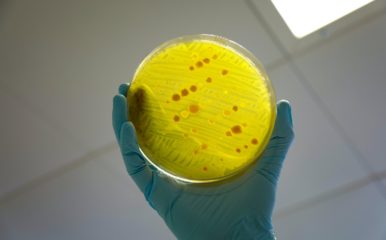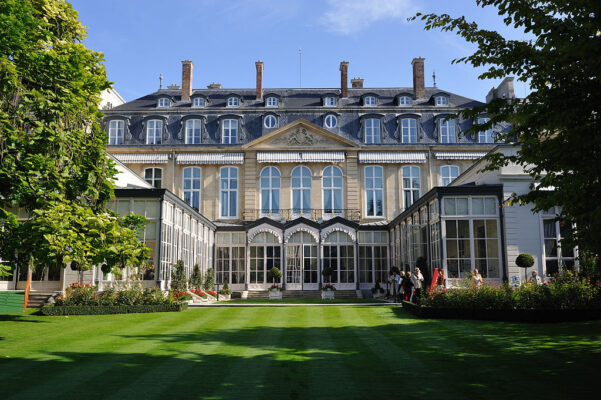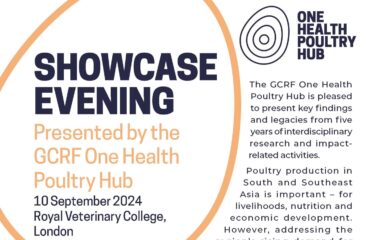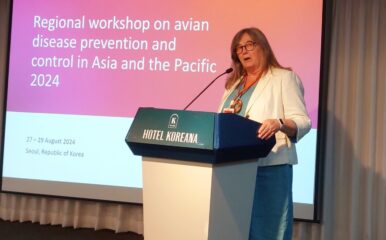
Hub top team stresses need for local knowledge in avian influenza policy in talk to government advisers
Published on 30/05/2023

Corquant/Wikimedia Commons
One Health Poultry Hub Director Professor Fiona Tomley and Research Coordinator Professor Guillaume Fournié presented the Hub’s One Health work on avian influenza to an international audience of government advisers, scientists and other senior influencers at the British Ambassador’s residence in Paris.
The event was organised by the UK Department of Food and Rural Affairs and was hosted by Dr Christine Middlemiss, the UK’s Chief Veterinary Officer and Chair of the Hub’s Advisory Board. Invitees included several other country chief veterinary officers, as well as selected attendees of the 90th General Session of the World Assembly of Delegates to the World Organisation for Animal Health (WOAH, formerly the OIE) which was taking place in Paris at the same time.
The WOAH General Session also had a focus on avian influenza, which in its current outbreak has killed hundreds of millions of birds and infected mammals worldwide, including in a handful of cases people. The disease has been detected in more than 80 countries now.
Behaviour and disease
In their presentation, Fiona Tomley and Guillaume Fournié detailed the ‘paradox of presence’, which underlies the Hub’s research work drilling down into how patterns of behaviours impact the evolution and spread of avian influenza.
Fiona Tomley explained: “Paradox of presence describes situations where ideas, hypothesis, decisions and policies are developed based on aggregated ‘macro’ level data, but this fails to understand or even describe ‘reality’ at ground level. This has been the situation in the case of avian influenza where there has been access to large amounts of aggregated data on the evolution of poultry production systems at the macro level and detailed molecular data on pathogens affecting these systems, but little understanding of the contexts in which these pathogens spread.
“To fill this gap the Poultry Hub has developed the concept of poultry distribution networks. This extends value chain analysis, which is largely concerned with distributional, regulatory and efficiency questions, to provide a framework to explore the social, economic and cultural structures within which poultry are produced, traded and consumed.”
Policy and interventions
She added: “This is important because social and economic processes and structures, such as relations of patronage, indebtedness, trust, loyalty, political relations and gender relations, create the risk environments in which pathogens can emerge and spread. And it is essential to understand in detail these risk environments if interventions for management and control of infectious diseases such as avian influenza are to have a chance of success.
“The Hub was delighted to have this opportunity to explain these ideas and the importance of our work for informing policy and interventions to such an esteemed and influential audience.”
Other speakers at the event included Professor Ian Brown of APHA, a Hub co-Investigator, who presented on FluMap. Dr Middlemiss introduced the event, which was closed by WOAH Director General Monique Eloit.


